|
|
alexandræ.fr · yet another probabilistic "paradox", as if the world needed any more
yet another probabilistic "paradox", as if the world needed any moreapril 22nd, 2024
an algorithm wants to quantify how attractive its website is to a given user. to do so, it checks them every minute to see if they're connected, and estimates the probability of them connecting each minute.
one of these users connects themself every even-numbered minute, and disconnects every odd one. one could argue that, in order to estimate the said probability, we simply have to do the number of minutes they're connected (30) divided by the number of minutes per hour (60), which gives us an estimate of 1/2. so, with that estimation method, one could conclude the user might have a constant probability of 1/2 to connect every minute. after all, nothing seems to contradict any assumption of constant probability, right ? 30 connections per hour seems reasonable... right ?
well, one could try to take the problem in reverse : let's assume we already have said probability \(p,\) and we want to know the expected number of minutes per hour when the user be connected. to do so, the number of minutes they would be expected to stay connected is \(1/p,\) and the number of minutes they would be expected to stay disconnected is \(1/(1-p).\) this means the expected number of connections per hour would be \(\displaystyle\frac{60}{\frac1p+\frac1{1-p}}=60\cdot p\cdot(1-p)...\) (yes that's just the expected value of the binomial distribution with parameter \((60,p),\) i just found this explanation spicier). it's pretty easy to tell \(60\cdot p\cdot(1-p)\) reaches its maximum value at \(p=1/2,\) which is 15. this means that with a constant probability 1/2 each minute, we could only expect up to 15 minutes per hour connected, meaning that 30 minutes per hour connected is not as likely to be a constant 1/2 probability of connection per minute as one may think ! it's much more likely that it varies throughout the hour, being at 100% for even-numbered minutes, and 0% for odd-numbered ones.
| ⟨ | formalising logical invariants... |
| | constructing birestrictions with sp... | ⟩ |
|
|







